news
ASUU will continue strike, but is it ethical?
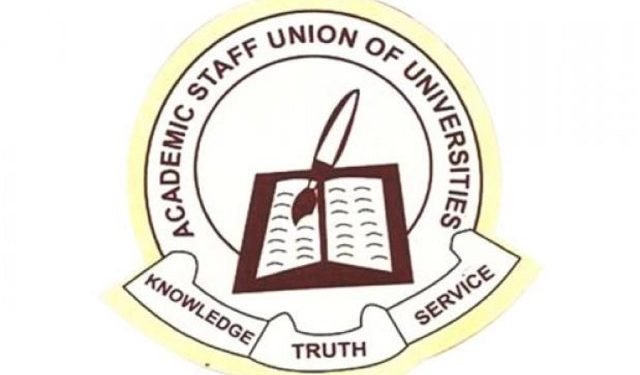

And then ASUU informs that it would not suspend its strike despite the payment of salaries hitherto withheld by the federal government.
ASUU insists that the federal government is not doing it any favour as its members were entitled to the salaries in the first place.
In fact, it now claims the “strike is not just about IPPIS.” ASUU had always claimed its strike was intent on voicing out the many ills in the education sector and rightly so. Until IPPIS happened.
Let’s answer for some unaccounted variables. The 2020 ASUU strike was all about IPPIS, as opposed to what the association said.
Anyone with half their eyes open could see what was apparent. Complaint about the inability of the government to stick to the memorandum of understanding agreed upon in 2009 was conspicuously a little detail pushed out to put the association’s grumbling in good light.
ASUU’s ill-feeling towards IPPIS is summarized in two words: University autonomy. Their contention is that IPPIS infringes on the independence of the university.
But a look at things suggest that the university was hardly ever autonomous. And if it was, can it be autonomous of whoever sponsors it? Any such thing as university autonomy will only thrive in a self-sufficient model. Most federal universities can’t survive without government’s funding.
And there is the recent grumbling that the federal government asked to revalidate the Bank Verification Number of lecturers.
ASUU questioned the sudden change because “members weren’t paid with BVN in the past.” One is confused. What exactly does ASUU want? I say “pick your struggle!”
ASUU would then instruct its members not to submit their BVN. What exactly is wrong in paying through a scheme that promotes transparency? Or what exactly is ASUU’s argument? The association seems to be shooting its position in the leg lately.
This may provoke a change in dynamics as the masses, even more students, begin to reckon with ASUU as a conglomerate of greedy lecturers. Maybe true, maybe not.
Speaking of change in dynamics, the pandemic threatens to tilt the balance of power to the federal government.
There is the question of whether it is thoughtful of ASUU to persist with the strike beyond the pandemic, knowing fully well the impact of the pandemic on the country’s mental state.
There is also a call for rationality. It is laughable that ASUU expects the government to keep to an MoU when its major stream of income has plummeted by more than 50%.
A barrel of oil no longer sells for the budgeted $57. At the genesis of the strike, it was already foretold that oil would drop to $37 in the second quarter —a depressing prediction for Nigeria’s surviving economy.
A barrel of oil went as low as under $20 few weeks back and there are no signs to suggest that it would appreciate to $57 before the year ends.
It is about time we coloured the sketches. This government is no saint either—that much needs be said. The figures directed to the unreasonable establishment of “tatashe” universities in 2018 could easily have been used to raise the standards of existing federal universities, and more importantly, pacify ASUU’s grumblings.
The government also happen to prioritise inconsequential projects like renovation of the senate complex. Not to mention, the insane figures pocketed by government officials.
When two elephants fight, the grass suffers. The government and ASUU are playing delay tactics and politics with innocent students’ future.
The calendar has been disjointed by the pandemic. Students can’t absorb any further damage from an association that claims to be committed to their interest.
ASUU will continue its strike, but is it ethical? Is it right to speak with a tone that suggest it is unwilling to agree to any compromise?
news
Opeifa request for the state government to assist the Railway Police and Otti, thanks Tinubu for picking the best material to rewrite Nigeria Railway history

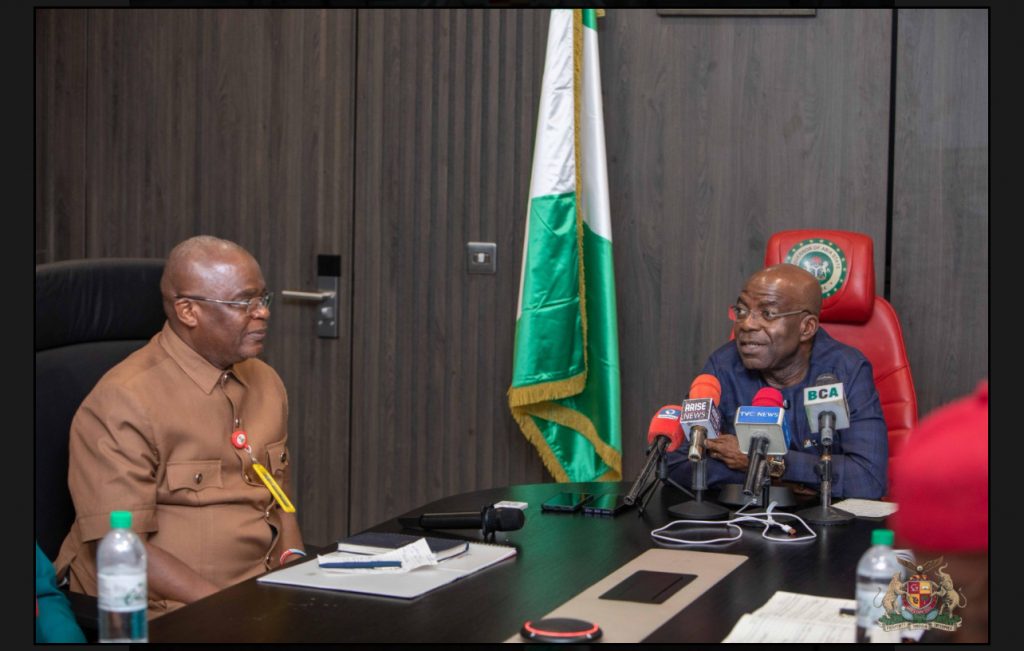 Gov. Otti describes Opeifa as a thorough-bred professional ready to rewrite Nigeria Railway history
Gov. Otti describes Opeifa as a thorough-bred professional ready to rewrite Nigeria Railway history
Lauds President Tinubu for picking the best material to reposition Nigeria’s oldest corporation
A deserving commendation came the way of the Managing Director of the Nigerian Railway Corporation, Dr Kayode Opeifa, as the Abia State Governor, His Excellency, Dr. Alex Otti, described him as an exceptional professional, most suitable to lead the Nigeria’s oldest surviving public corporation.
Governor Otti spoke on Wednesday, at the Government House in Abia State, during a business visit by the MD/CEO of the Nigerian Railway Corporation, as part of his familiarization tour of the Eastern District of the Corporation.
According to Governor Otti: “I have had so many engagements with past leaders of the Nigerian Railway Corporation, you are clearly different and knows the job”. He thanked President Bola Ahmed Tinubu for appointing Dr. Opeifa to lead the Nigerian Railway Corporation, expressing assurance at his ability to deliver.
He thanked the MD/CEO for promising to synergize with the Federal Ministry of Transportation, and the State Government to see that the transformation of the transportation system in Umuahia is achieved. According to the Governor, “Umuahia Bus terminal is progressing rapidly and we felt that it is important to replicate what we have in Paignton, United Kingdom in Umuahia, by linking the train station with the Terminal to enhance intermodal transportation services.
The Governor stated that he was very happy to see that the MD/CEO is committed to taking the track from Aba to Enugu and even beyond. He recalled, with nostalgia how the train had served the people of the state and regretted the downward trends of rain services across the entire South East.
On the MD/CEO’s request for the state government to assist the Railway Police in the state, Governor Otti promised that his government will provide mobility for Aba Railway Police.
He added that the state government is always ready to support the Federal Government institutions as users of such federal institutions are people of the state, adding that his administration cannot differentiate between federal and state government workers.
news
Airlin Advocacy Commissions Jos Office, Targets 7m Members By Next Elections,Says Mohammed Gamawa
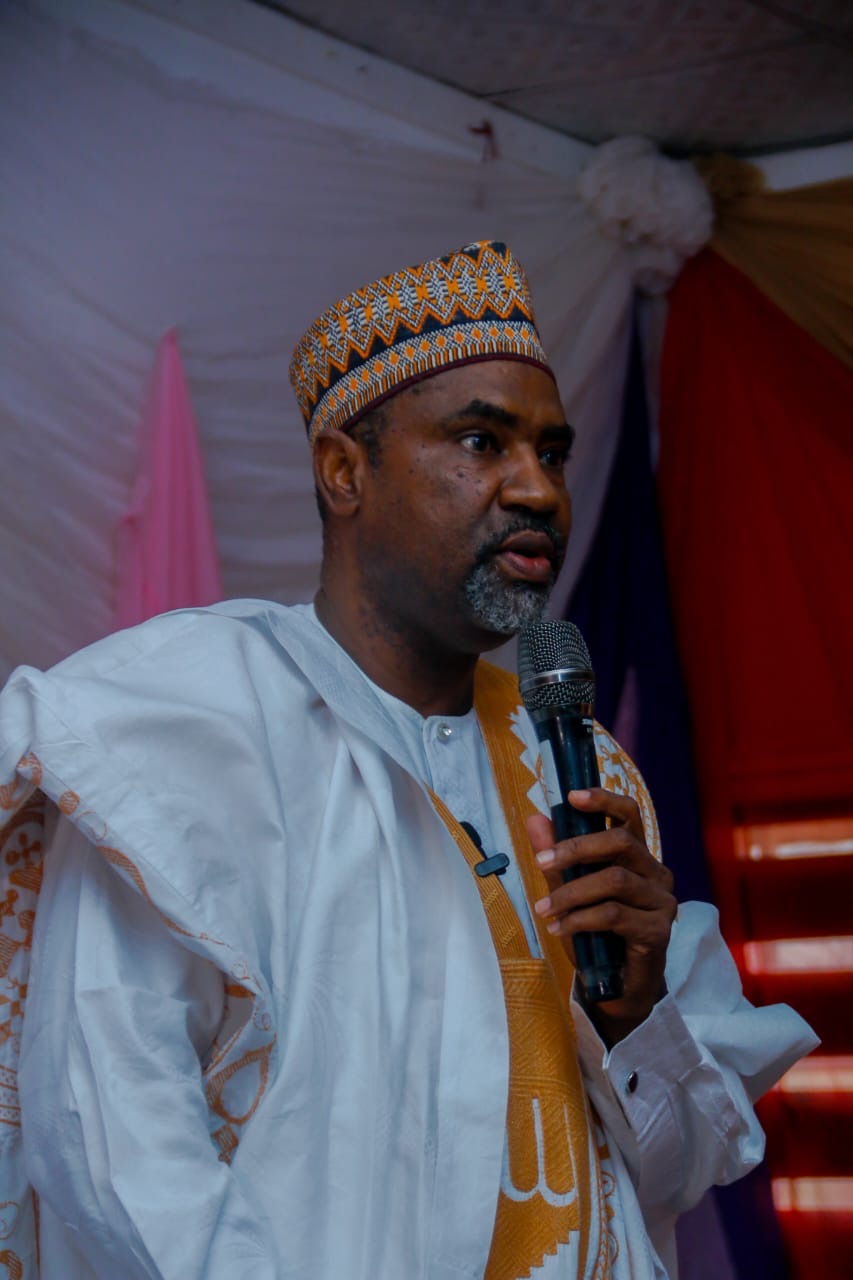
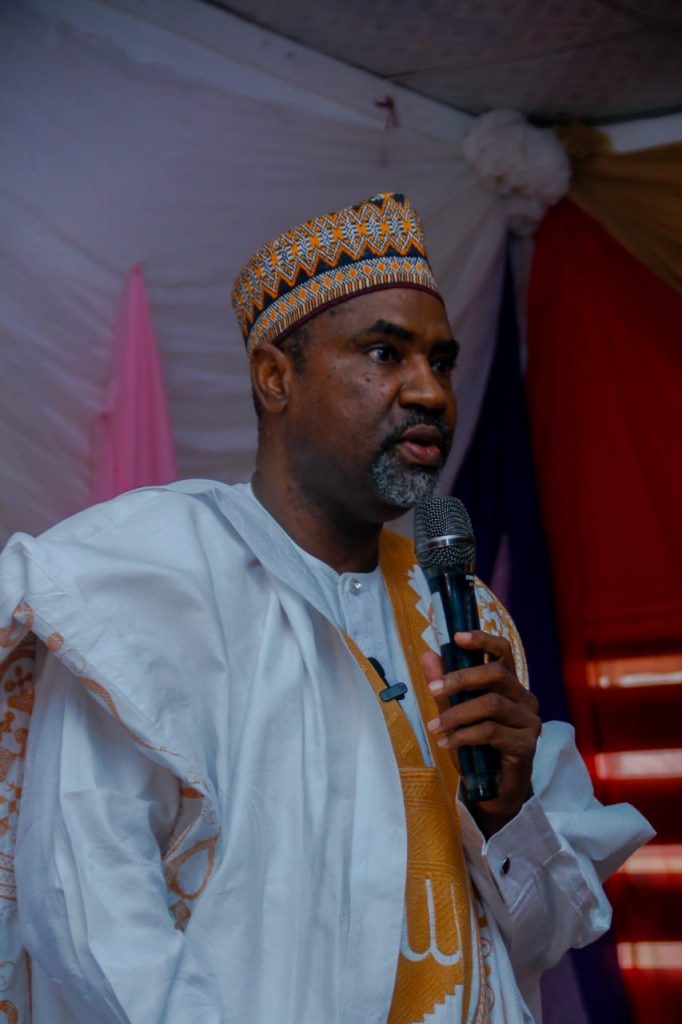 During the inauguration ceremony, the National Chairman of Airlin, Mohammed Gamawa, delivered a keynote address, emphasizing the organization’s commitment to educating Nigerians on their civic rights and responsibilities.
During the inauguration ceremony, the National Chairman of Airlin, Mohammed Gamawa, delivered a keynote address, emphasizing the organization’s commitment to educating Nigerians on their civic rights and responsibilities.
According to Gamawa, Airlin aims to bridge the gap between citizens and the principles of the rule of law by fostering a society where people understand not only their rights but also what is expected of them by the country.
“Our goal is to foster interaction among Nigerians, promote respect for the rule of law, and ensure citizens know their rights and civic responsibilities — such as voting to elect future leaders not based on materialism but based on integrity and competence,” Gamawa stated.
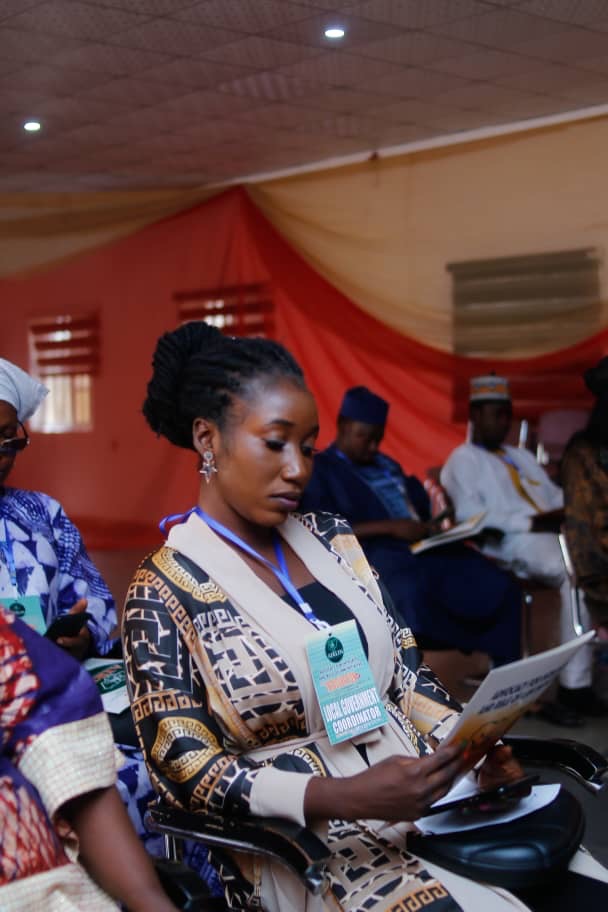
He added that understanding and exercising one’s franchise, especially during elections, must go hand in hand with being law-abiding and fully aware of civil responsibilities.
As part of its mission, Airlin is currently targeting 19 states in Northern Nigeria, with Jos becoming the 15th state to be commissioned.
The ceremony also featured the appointment of state and local government coordinators who will help drive the organization’s grassroots advocacy efforts.
With a current membership base of 2.1 million Nigerians aged 18 and above, Airlin projects a significant growth trajectory, aiming to reach 7 million members before the next general elections.
news
Nothing new in FBI report on Tinubu, says Onanuga
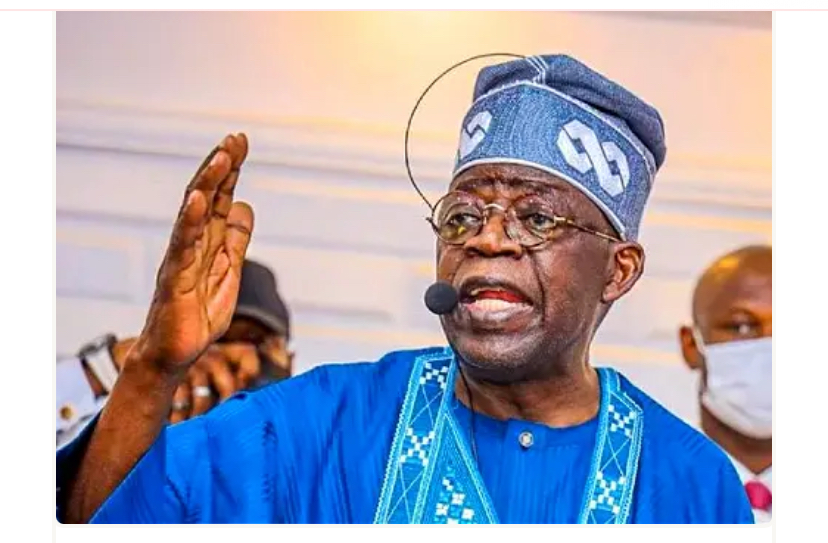
 Senior Special Adviser to the President on Information and Strategy Bayo Onanuga has dismissed a report of a United State (U.S.) court ordering two law enforcement agencies to release information on President Bola Ahmed Tinubu during a “purported federal investigation in the 1990s.”
Senior Special Adviser to the President on Information and Strategy Bayo Onanuga has dismissed a report of a United State (U.S.) court ordering two law enforcement agencies to release information on President Bola Ahmed Tinubu during a “purported federal investigation in the 1990s.”
In a tweet on his verified X handle, Onanuga told those agitated by the directive that there would be nothing revealing in the anticipated report.
In an April 9 ruling, District Court for the District of Columbia Judge, Beryl Howell ordered the Department of State, Federal Bureau of Investigation (FBI), Internal Revenue Service (IRS), Drug Enforcement Administration (DEA) and the Central Intelligence Agency (CIA) to release the information to Mr. Allan Greenspan.
The information being sought by Greenspan was classified as “confidential information” generated during a “purported federal investigation in the 1990s.”
Judge Howell said that protecting the information from public disclosure “is neither logical nor plausible.”
Commenting on the ruling, Onanuga said: “There is nothing new to be revealed. The report by Agent Moss of the FBI and the DEA report have been in the public space for more than 30 years. The reports did not indict the Nigerian leader”, Onanuga said yesterday.
He said that counsel to the President have been “examining the ruling”.
-

 news4 years ago
news4 years agoUPDATE: #ENDSARS: CCTV footage of Lekki shootings intact – Says Sanwo – Olu
-

 news1 year ago
news1 year agoEnvironmental Pollutions : OGONI COMMUNITY CRIES OUT, THREATENS TO SHUT DOWN FIRSTBANK,SHELL OIL COMPANY OPERATIONS FOR NOT PAYING COURT AWARD
-

 news3 weeks ago
news3 weeks agoBreaking : TInubu appoints Bashir Ojulari as new CEO group of NNPC and GMD mele kyari get sacked, Says Onanuga
-
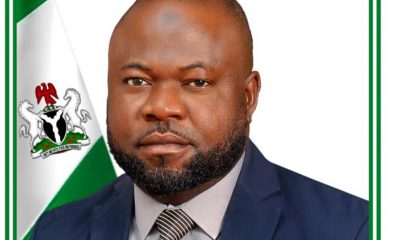
 interview3 weeks ago
interview3 weeks agoNIGERIA MECHANIZED AGRO EXTENSION SERVICE PROJECT, A STRATEGIC MOVE TO ALLEVIATE POVERTY – DR. AMINU ABDULKADIR
-

 news3 weeks ago
news3 weeks agoUpdate : Fubara ordered bombing of Rivers Assembly, I am not under duress I resigned, Says ex-Rivers HoS Nwaeke
-

 news7 days ago
news7 days agoNothing new in FBI report on Tinubu, says Onanuga
-

 news3 weeks ago
news3 weeks agoTinubu commended Nandap for her leadership, extends Comptroller-General tenure till 2026, says Onanuga
-

 news2 weeks ago
news2 weeks agoUpdate : FG confirms continuation of crude, refined product sales in Naira initiative, Says Wale Edu


